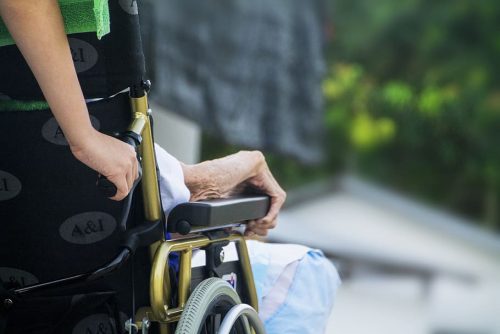The threat of COVID-19 can take a massive toll on our emotional well-being. Even for those who don’t live with an anxiety disorder may find themselves worrying more than usual. Thankfully, there are ways of managing such and getting through this pandemic.
Establish A Routine
The outbreak of COVID-19 has turned everyone’s lives upside down. Almost everyone across the globe is now living differently from accustomed. Because of this drastic change, many feel lost and anxious.
Something you can do to avoid excessive worrying is to establish a routine. It helps to make it similar to what you’re used to already. Although it won’t be entirely the same, you can stick to your usual meal hours and sleep schedule. Next, you can figure out how to adjust when it comes to work, school, and other activities.
Set Reasonable Goals

Because citizens have to stay at home, some are treating this pandemic as a vacation rather than a crisis. They tend to think that because people now have more free time, they have to be productive.
However, the coronavirus outbreak is anything but ordinary. Don’t think that you have to come out of this pandemic with life-changing achievements. Everyone is collectively experiencing something traumatic to some degree. Even just making it through the day is already a significant step forward.
Instead of pressuring yourself to be extremely productive, set realistic daily goals instead. It could be something seemingly simple, like exercising, doing the laundry, or reaching out to friends. Give yourself the credit you deserve.
Limit Your Exposure To The News
One of the leading causes of anxiety during this time is fixating on the news and social media. It’s tempting to check the television every hour for updates, especially when the outbreak began. However, the barrage of worrying headlines will end up worrying you instead of providing you with information.
While it’s vital for you to stay updated, set a limit on how often you check on the news as well as social media. You can let yourself watch the news twice a day, for example. Also, remember to always stick to credible sources of information. As a guide, turn to the CDC, WHO, and your local health offices.
Follow A Proper Sleep Schedule

Since most people don’t have school or work to worry about the following day, many are staying up late. This practice will then lead to sleeping in, completely overhauling your regular sleep schedule.
However, sleep is not only essential to your physical health, but it also has effects on your mental wellness. Sleep deprivation will make you more likely to experience anxiety as well as depression. So see to it that you get enough sleep and follow a regular schedule.
Apply Relaxation Techniques
Similar to how you would deal with stress in any situation, it helps to take a step back. Then, you can adapt techniques that can help you relax. You may choose deep breathing, with several videos available, as well as mobile apps to guide you. Likewise, yoga and meditation are popular options to help keep you calm.
If these choices aren’t your thing, even soaking in a warm tub, listening to music, or enjoying a cup of tea can help.
Help Others

Sometimes, anxiety stems from worrying over other people. We’re concerned about how our loved ones, neighbors, and the general public is during this health crisis. Does everyone have something to eat? Does anyone need to buy medicine? Does anyone need someone to talk to and keep them company?
Even though guidelines call for physical distance, that doesn’t mean we can’t help others. If you have elderly neighbors or family, you can offer to get them groceries during your next run. You can also donate to charity organizations that might have a better capacity to provide help.
Additionally, Anna Yusim, MD, says, “Fear and anxiety are as contagious as the virus.” Thankfully, you can also spread calmness and mindfulness. Although you may experience anxiety sometimes, you can uplift others when they feel the same. Share with them the techniques you’ve learned in keeping yourself less anxious during these times.
Final Thoughts
Feeling worried during this outbreak is entirely understandable. A large portion of the population is probably experiencing the same feeling.
When it comes to managing anxiety, focus on things that you do have power over. Establish a routine with achievable daily goals. Don’t fixate on the news too much and get adequate sleep at the proper time.
Find relaxing activities that you can partake in, such as yoga or drinking some calming tea. Lastly, reach out and help others. It’s a difficult time for everyone, and being a calming influence can have a positive impact on many individuals.
Considering feeling relaxed does not cut it for you anymore, know that BetterHelp psychologists are always there to help you.